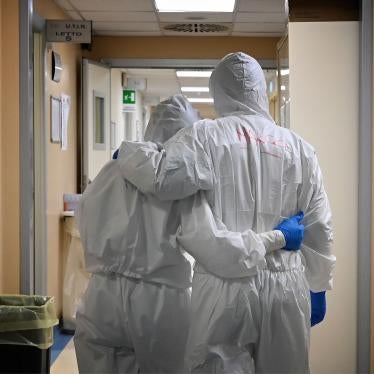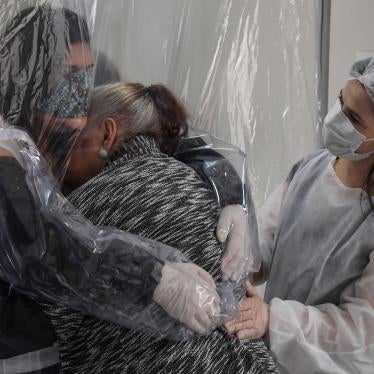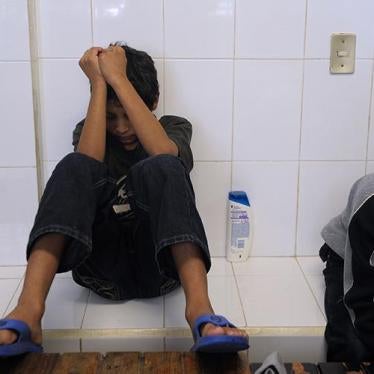U.S. efforts to force the United Nations to withdraw support for needle exchange programs endanger global efforts to prevent the spread of HIV, a group of AIDS organizations, human rights groups, scientific researchers and policy analysts from 56 countries said today.
The groups urged the United Nations to stand firm at a crucial international policy meeting on narcotic drugs to be held next week in Vienna.
“Silencing the United Nations on needle exchange is deadly diplomacy,” said Jonathan Cohen of Human Rights Watch’s HIV/AIDS Program, one of the signatories of an open letter released today to urge delegates of the U.N. Commission on Narcotic Drugs not to capitulate to U.S. pressure. “The United States should be encouraging proven HIV prevention strategies, not attacking them.”
The United States, which is the only country in the world to explicitly ban use of federal funds for needle exchange, has recently intensified pressure on the United Nations to stop promotion of this HIV-prevention strategy. Following a meeting with an assistant secretary in the U.S. State Department last November, the head of the U.N. Office on Drugs and Crime (UNODC) promised in a widely circulated letter to be “even more vigilant” in reviewing all electronic and printed documents for references to “harm reduction,” a term used for syringe exchange and other measures that seek to protect the health of drug users. A senior staff member at UNODC later emailed other employees to “ensure that references to harm reduction and needle/syringe exchange are avoided in UNODC documents, publications and statements.”
UNODC is the current chair of the joint U.N. Program on HIV/AIDS, a fact that critics say makes the U.S. pressure on UNODC particularly alarming.
“The fastest growing epidemics in the world are being driven by injection-drug use, and provision of sterile injection equipment is among the most important, proven strategies to contain them,” said Kasia Malinowska-Sempruch of the Open Society Institute, another of the letter’s signatories. “It is reprehensible that the United States would try to compel the United Nations to keep silent about one of the best studied and most effective HIV prevention measures.”
Injection-drug use accounts for the majority of HIV cases in China, Iran, Afghanistan, Nepal, the Baltic states, and all of Central Asia, as well as much of Southeast Asia and South America. In Russia, where there are now more cases of HIV than in North America, as many as 80% of infections are attributed to injection drug use.
Syringe exchange has been endorsed as an effective means of HIV-prevention by leading scientific, public health, and medical associations in the United States, including the American Medical Association, the American Public Health Association, and the National Academy of Sciences. The World Health Organization has also endorsed syringe exchange. Opponents of syringe exchange are among the same U.S. lawmakers who oppose sexually explicit HIV-prevention messages in favor of unproven “abstinence only” approaches.
“Whether it’s sex or drugs, the United States is exporting an abstinence-only agenda to countries hard hit by HIV/AIDS,” said Joanne Csete, executive director of the Canadian HIV/AIDS Legal Network. “If governments do not stand up to this bullying, millions will pay the price.”
Human Rights Watch is an independent nongovernmental organization that monitors human rights developments in more than 60 countries worldwide. Human Rights Watch has issued numerous reports on human rights abuses against injection drug users that increase their risk of HIV/AIDS.
The Open Society Institute aims to shape public policy to promote democratic governance, human rights and economic, legal and social reform. On a local level, OSI implements a range of initiatives to support the rule of law, education, public health, and independent media. At the same time, OSI works to build alliances across borders and continents on issues such as combating corruption and rights abuses.
The Canadian HIV/AIDS Legal Network was founded in 1992 to promote the human rights of people living with and vulnerable to HIV/AIDS, in Canada and internationally, through research, legal and policy analysis, education, advocacy, and community mobilization. The Network is Canada’s leading advocacy organization for legal, ethical, and human rights issues raised by HIV/AIDS.






